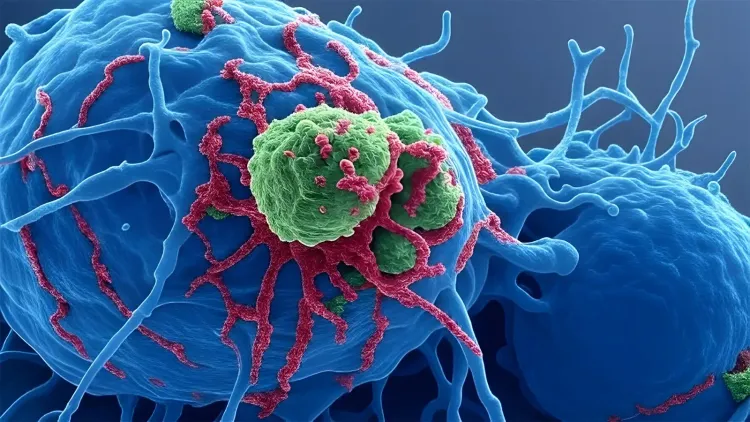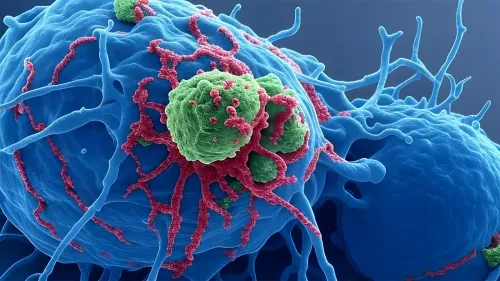Could an Immunotherapy Drug Revolutionize Treatment for Aggressive Cancers?

Synopsis
Key Takeaways
- 2141-V11 shows significant promise in treating aggressive cancers.
- Patients experienced tumor shrinkage and complete remissions.
- No severe side effects reported during the trial.
- Targeted local injections led to systemic immune responses.
- Continued research and investment are crucial for cancer therapies.
New Delhi, Aug 15 (NationPress) A newly refined immunotherapy drug has demonstrated considerable potential against aggressive cancers in phase-1 trials, as reported by researchers.
CD40 agonist antibodies—a category of cancer therapies—have historically been effective at activating the immune system to eradicate cancer cells in animal studies. However, they have also resulted in severe systemic inflammatory responses, diminished platelet counts, and liver toxicity, among other negative effects—even at minimal doses in humans.
In 2018, a group of US researchers from Rockefeller University modified the CD40 agonist antibody to enhance its effectiveness while minimizing severe side effects.
The findings from the Phase I clinical trial of the drug, known as 2141-V11, revealed that out of 12 patients, six experienced tumor shrinkage, with two achieving complete disappearance of their tumors.
"Observing these significant reductions and even complete remission in such a small group of patients is truly extraordinary," stated first author Juan Osorio, a medical oncologist at Memorial Sloan Kettering Cancer Center.
Crucially, the effects were not confined to the tumors treated with the drug; tumors in other parts of the body either decreased in size or were destroyed by immune cells, as demonstrated in results published in the journal Cancer Cell.
"This phenomenon—where a local injection leads to a systemic response—is rarely observed in any clinical treatment," commented Jeffrey V. Ravetch from Rockefeller, who led the study. "It’s yet another striking and unexpected outcome from our trial."
The CD40 receptor is a cell surface protein belonging to the tumor necrosis factor (TNF) receptor superfamily, which are predominantly expressed by immune cells.
Activation of CD40 triggers the immune system to mobilize, enhancing antitumor immunity and developing tumor-specific T cell responses.
In 2018, Ravetch's lab engineered 2141-V11, a CD40 antibody that tightly binds to human CD40 receptors, modified to increase its crosslinking by engaging a specific Fc receptor.
This modification made it ten times more effective in generating an antitumor immune response.
Instead of intravenous administration, the team opted to inject the drug directly into the tumors.
Among the 12 patients with melanoma, renal cell carcinoma, and various types of breast cancer, none experienced the severe side effects associated with other CD40 drugs.
Six patients showed systemic tumor reduction, with two patients suffering from melanoma and breast cancer—both known for their aggressiveness and tendency to recur—achieving complete remission.










